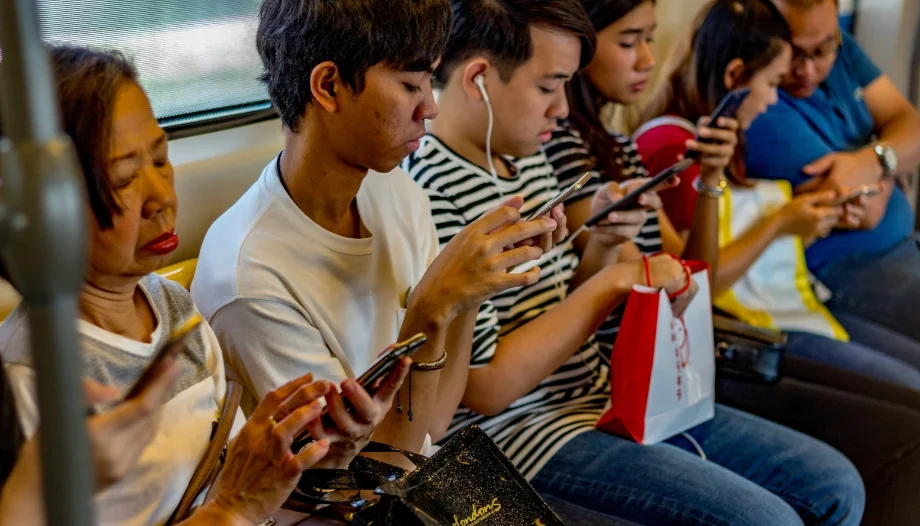In the schools where I work I have seen teenagers who read. They exist. They pull out the novel during reading time, they move on when they are injured and can't do physical education. In the best of cases, they finish it off in the afternoon, while they wait to be picked up. In the tutorials I have with students, I usually break the ice with this topic (Literature is my weakness). In this way I have gotten to know their reading habits and with more than one of them we have become friends.
Faced with the question: "Do you like reading?", some say yes, very much, and even mention outstanding titles. But they are few. Most answer something like: "I can't stand the mandatory books in the reading plan, so I look for summaries on the Internet... but sometimes I read other things on my own". There we connect, and as soon as they mention titles or literary characters they smile, breathe and a good conversation begins.
Well, following the teenagers' lead, I have been reading some of the novels they choose as a hobby (perhaps as part of those 5.5 books that a Chilean reads per year, according to the recent report of the Ministry of Cultures and INE). My intention was to get an idea of their world and I ended up enjoying more than them: Maze Runner, The Hunger Games, Percy Jackson. They are entertaining novels, full of magic, fantasy or science fiction that, indeed, accelerate the heart and have enough strength to initiate someone in the reading habit. However, they leave with a taste of little and sometimes tend to an unedifying brutality.
"Would you like to read more?", I ask them later. "Yes, but social media takes up too much of my time." We always end up there. It's inescapable. Whatever I do, tutoring flows towards complaining against screens, the difficulties to free oneself from their tentacles, the desire to walk nimbly, without the weight of that pocket anchor. The cell phone is the elephant in the glassware of education. Because of it, children's minds are losing the ability to digest longer or less adrenalin-pumping stories that illustrate essential areas of life. As Gabriela Mistral complained in 1925, Chile is a "people that seeks the violent chronicle of crime, to receive the electric sensation, because it ignores the delicate thrill of other emotions". Indeed, today young people drink plenty of violence in best sellers: characters who offer themselves to compete in macabre life and death competitions, others who fight for their skin while trying to escape from an absurd labyrinth. That may qualify as a start, I do not deny it, but I am afraid to warn of the possibility that it may also constitute a ceiling.
What would our poet say if she were among us? She would probably outline a discreet question to adults: On what scale of priorities do you place the education of children? How do you help them rise from the rawness of The Hunger Games to the elegance of a Verne, a Stevenson, a Tolstoy? Next, perhaps he would give us this advice that he wielded in 1935: "The task in favor of the book that corresponds to teachers and parents is to awaken the appetite for the book, to pass from there to the pleasure of it and to finish off the enterprise by leaving a simple pleasure promoted to passion". In fact, in the same writing he added that the educator's challenge consists in: "To make one read, as one eats, every day, until reading becomes, like looking, a natural exercise, but always a joyful one. The habit cannot be acquired if it does not promise and fulfill pleasure". Here is the key for our Nobel Prize winner: reading is learned through enjoyment, and the child needs the adult to guide him.
The task of educators, therefore, is not to demand a certain number of books read from their students, or to aspire to surpass the average of 5.5 books per year with any title, but to invoke their own experience as readers, to radiate desire, to share the enormous happiness we receive from literary creation. However, motivating is an arduous challenge, due to the number of brambles that cover the earth. The main enemy, we were saying, is the telephone: children have a device that decimates their attention, during the day and at night, without giving them respite, without letting them delve into anything, keeping them away from the classics of Literature.
In this sense, the work of parents and teachers is more meritorious than before: it is up to them to convince by attraction, magnetism, irresistible enthusiasm. The normal teacher is no longer enough; now we need the hero. We urgently need men and women with the vocation to encourage children to savor the riches of folklore, stories, novels and good essays. Doing this, without a doubt, is much more difficult than meeting a goal of a certain number of books read per year. For only those who, one, love good books and, two, accompany young people in their struggle against distractions, can instill affection for books. Ultimately, they want to read more, but they need our help to do so.
Lawyer from the Pontifical Catholic University of Chile, Licentiate in Theology from the Pontifical University of the Holy Cross (Rome) and Doctorate in Theology from the University of Navarra (Spain).







